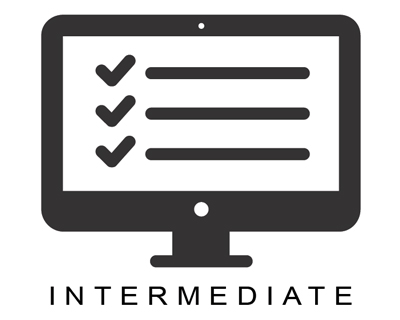The Prescott Community Compost Project (PCCP) is a volunteer-driven non-profit that processes food scraps into compost, fostering community engagement and education. It operates a booth at the Prescott Farmers Market, where people drop off food scraps, learn about composting, and purchase compost. PCCP plays a vital role in local organics recycling, inspiring and educating participants… Continue reading DIV.118-Community as a Renewable Resource-AC25.USCC
Category: Organics Diversion
DIV.233-How Much Household Food Scraps Do Municipal Programs Collect-AC25.USCC
Municipal food scraps collection programs are expanding, but accurately measuring diversion rates remains a challenge, especially when mixed with yard trimmings. This session explores barriers to quantification, available measurement tools, and case studies of successful approaches used by municipalities. The content of this course is covered by Copyright and Licensing, Privacy and Terms of Service… Continue reading DIV.233-How Much Household Food Scraps Do Municipal Programs Collect-AC25.USCC
DIV.232-Facilitated Discussion on Contamination-AC25.USCC
Discussion with speakers on Contamination The content of this course is covered by Copyright and Licensing, Privacy and Terms of Service and Use and shall not be reprinted, reused or re-sold. For full terms visit www.compostu.net.Speakers: nan nanDuration: 29 minutesCredits: 0.5Member Price: $30.00Non-Member Price: $52.50Purchase Course Now
DIV.117-AI Robotics vs. Human in Compost Contamination Removal-AC25.USCC
Atlas Organics installed an AI-powered robotic picking unit at their San Antonio site in 2021, and after three years of troubleshooting and data collection, they conducted a 2023 study to compare the contamination removal performance of robots versus human pickers. The study analyzed robotic pick success, quality, and quantity, and compared them to various sorting… Continue reading DIV.117-AI Robotics vs. Human in Compost Contamination Removal-AC25.USCC
DIV.116-Curbing Contamination Through the Entire Compost Value Chain-AC25.USCC
This session will discuss how everyone in the compost value chain, from generators to end users, can contribute to producing cleaner, high-quality compost. It will cover best practices for reducing contamination, incentivizing clean feedstocks, and building stronger industry partnerships to ensure sustainability and product integrity. The content of this course is covered by Copyright and… Continue reading DIV.116-Curbing Contamination Through the Entire Compost Value Chain-AC25.USCC
DIV.237-Composting Infrastructure for Food Waste Diversion-AC25.USCC
This 90-minute panel will discuss food waste diversion in Phoenix, featuring experts from key facilities. Topics include food waste collection, contamination mitigation, public education, backend sortation, mega-event logistics, and the city’s composting programs. The panel will showcase successful collaborations between local organizations and facilities. The content of this course is covered by Copyright and Licensing,… Continue reading DIV.237-Composting Infrastructure for Food Waste Diversion-AC25.USCC
DIV.236-Contamination Removal at Large Scale Compost Facilities-AC25.USCC
This presentation will address managing contamination in composting facilities, covering types of contamination, methods to manage it without equipment, and best practices for labor, communication, and enforcement. It will also discuss equipment options for reducing contamination, including costs, maintenance, pros and cons, and their impact on product quality and profitability. Insights into working with customers… Continue reading DIV.236-Contamination Removal at Large Scale Compost Facilities-AC25.USCC
DIV.235-Managing Contamination in Large Scale Organics Programs-AC25.USCC
This presentation by CompostNow will discuss best practices for managing contamination in large-scale organics programs. It will cover strategies developed over a decade of experience, including establishing clear communication with partners, implementing contamination fee schedules, bundling compostable products with services, placing containers strategically, and using on-site sorting teams. Successful case studies from sports arenas, live… Continue reading DIV.235-Managing Contamination in Large Scale Organics Programs-AC25.USCC
DIV.234-Addressing Contamination – Collection Processing AD Com…-AC25.USCC
This presentation covers the organics operations in Sacramento, CA, developed in response to SB 1383. It includes food waste collection from the region, preprocessing to remove contamination, anaerobic digestion to generate biogas, and composting of the digestate. The focus is on the circular solution from collection to composting, highlighting the role of each process. The… Continue reading DIV.234-Addressing Contamination – Collection Processing AD Com…-AC25.USCC
DIV.231-Compost and Carbon Farming-Diverting Organics-AC25.USCC
San Mateo RCD’s Compost Program helps farms access cost-reduced compost to meet California’s organics diversion law, improving soil health and carbon sequestration while boosting the regional compost economy. The content of this course is covered by Copyright and Licensing, Privacy and Terms of Service and Use and shall not be reprinted, reused or re-sold. For… Continue reading DIV.231-Compost and Carbon Farming-Diverting Organics-AC25.USCC

